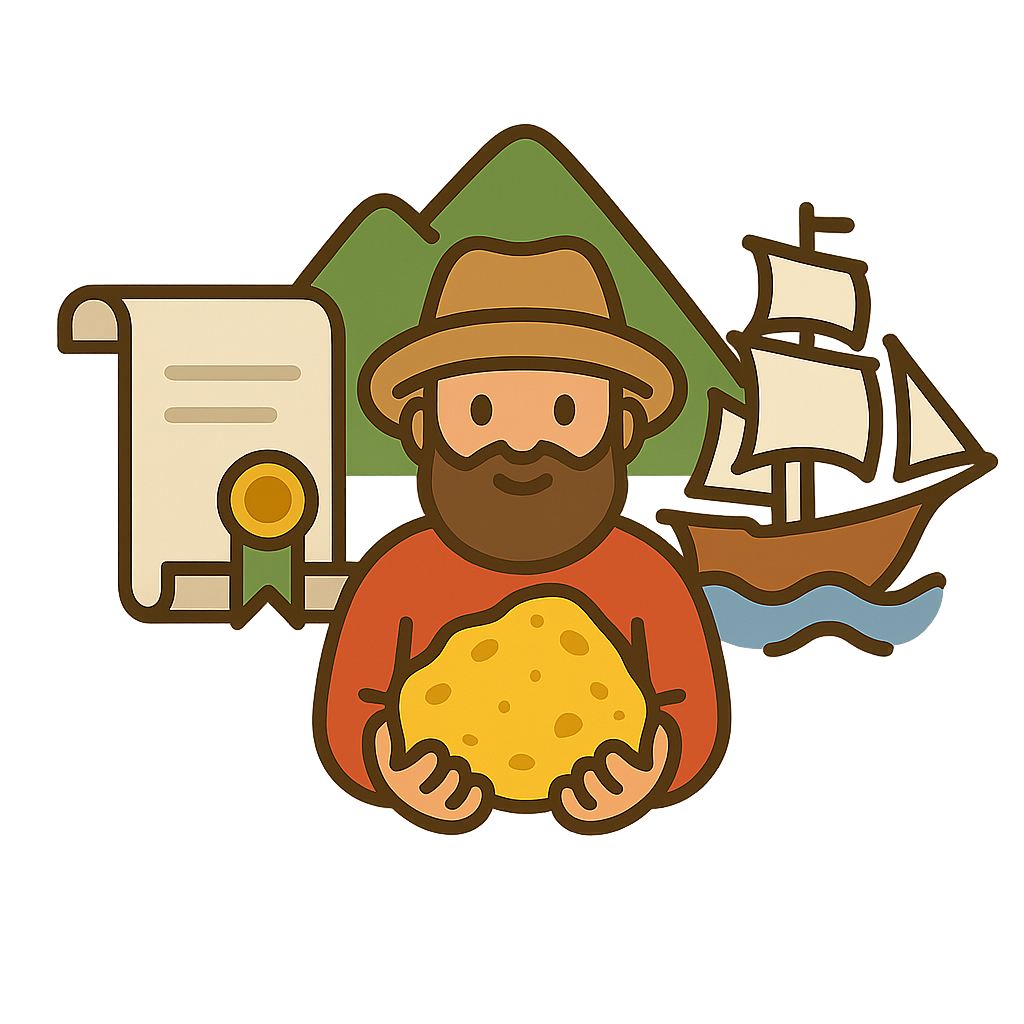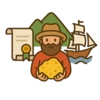A Forty-Niner's Story: Chasing the Golden Dream
My name is Eli, and before my great adventure, my world was as small and quiet as our family farm in Missouri. Life was measured by the seasons: planting corn in the spring, mending fences in the summer, and harvesting in the fall. The loudest sound was usually the rooster crowing at dawn. But in 1848, a whisper traveled all the way from the West, carried on the wind and in letters passed from hand to hand. The whisper was about a man named James W. Marshall, who had found something shiny in a river at a place called Sutter's Mill in California. It was gold. Soon, that whisper became a roar. Newspapers printed wild stories of mountains made of gold and rivers flowing with it. A feeling called 'gold fever' swept through my town, and suddenly, everyone was talking about California. Young men I’d known my whole life started packing their bags, their eyes shining with dreams of picking up giant gold nuggets right off the ground. I was only seventeen, but the idea of adventure grabbed hold of my heart and wouldn't let go. I imagined a life beyond the cornfields, a life of excitement and discovery. So, in the spring of 1849, I said goodbye to my family, packed a small bag with a change of clothes, a sturdy shovel, and a tin pan, and joined a long line of wagons heading west. We were the 'Forty-Niners', and we were chasing the sun toward a golden dream.
That journey west was longer and harder than I could have ever imagined. For months, our wagon train rumbled over dusty plains, crossed wide rivers, and climbed steep, rocky mountains. The sun beat down on us during the day, and the nights were cold under a blanket of brilliant stars. When we finally arrived in California, it looked like a land of sunshine and golden hills, just like the stories said. But the gold wasn't just lying on the ground waiting for us. Finding it was back-breaking work. I spent my days standing knee-deep in icy-cold streams, scooping panfuls of heavy, wet gravel from the riverbed. I'd swirl the water, sand, and rock around and around, my heart pounding each time as I watched the lighter dirt wash over the edge. Most of the time, all that was left was mud and pebbles. But then, one afternoon, I saw it. A tiny, gleaming flake, smaller than my littlest fingernail, shining at the bottom of my pan. It was gold. The feeling was like a jolt of lightning. The thrill of that tiny discovery kept me going through many long, disappointing days. My home was a bustling, noisy mining camp, a town of tents and wooden shacks that had sprung up almost overnight. It was filled with people from all over America and even from countries I’d only read about in books, like Mexico, China, and France. We all looked different and spoke different languages, but we understood the hope in each other's eyes. We were all there for the same reason, sharing the same golden dream.
I spent two years in those golden hills, and while my pockets never overflowed with nuggets, I left California richer than when I arrived. I learned that I was tougher than I ever thought possible. I learned to rely on myself and on the kindness of strangers who became friends. We shared food when supplies were low and worked together when a rockslide blocked the river. The real treasure wasn't the gold I found in my pan, but the courage I found in my heart and the friendships I forged by the campfire. Looking back, I see that we Forty-Niners did more than just dig for gold. We helped build something new. All of us, coming from every corner of the world, turned California from a quiet, faraway place into a bustling new state, which officially joined the United States in 1850. My great adventure taught me that sometimes the journey itself is the prize, and the hard work you do along the way is its own reward.
Reading Comprehension Questions
Click to see answer



